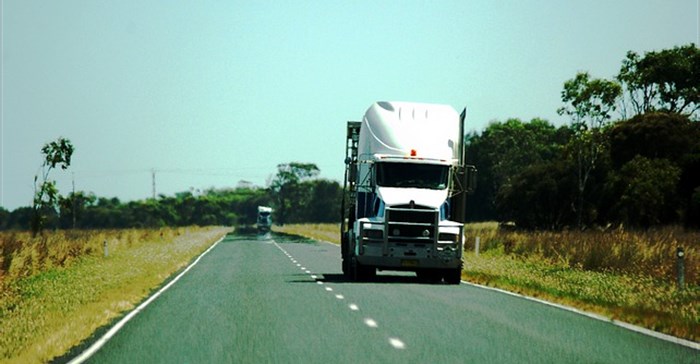While the transport industry has seen some necessary change in the past two decades, road transport remains the dominant way to move large volumes of goods in Southern Africa. Transport is an essential service that drives the economy and affects everyday life.
But it is a tough industry that often struggles with poor public perception. It is both capital- and labour-intensive, and - unless you are passionate about trucks - there is nothing glamorous about it.
Trucking has entered the information age
Sections of the industry have undergone radical transformation. Increased innovation has made transport smarter, more efficient, and, critically, safer. Modern commercial vehicles have advanced telematics, tracking systems, on-board computers, dynamic routing and scheduling, in-cab cameras, and driver monitoring and management systems.
Transport has entered the information age in which technological advancement, mobile data, and analytics enable a new connected world. Data from telematics helps to monitor and analyse our fleet and our drivers in real time, providing superior journey management for greater efficiencies, enhanced safety, and, ultimately, cost savings for the customer.
It's all about people
While innovation is critical to modern transport, people and risk management remain as important as ever.
Transport is all about people: those we employ, those we serve by transporting goods and those communities in which we operate.
Drivers are a central cog in the transport industry machine and even though modern trucks are technologically advanced, they still require professional drivers with the skills and experience to operate them. Professional transport operators have to ensure that drivers are properly trained, competent, and medically fit. Looking after drivers and protecting the lives of all road users is not negotiable.
Customer collaboration and supply chain integration is another positive aspect of the industry today. With the amount of real-time information now available, there is greater data sharing and collaboration with customers, making supply chains more transparent and efficient.
Risk management
The industry has opened itself to much-needed innovation to improve operational efficiencies and to better serve customers. But, aside from vehicle innovation and technology changes, we are also confronted daily by change-inducing risk. The road statistics are shocking. In 2015 there were close to 1-million accidents, which means that one in 10 vehicles on South African roads was in an accident.
Unroadworthy vehicles and illegal operators are commonplace, and unlicensed drivers and fraudulently obtained licences are a real problem. About 43% of professional drivers in SA have expired professional driving permits.
This scenario is compounded by a serious driver skills shortage and a complex labour context. Labour unrest is expected in a labour-intensive climate and can emerge either from within the industry or in an associated industry where a largescale strike at a client can have a knock-on effect for the transporter.
Lost productivity hurts drivers, transporters, customers, and the economy. But this is a reality that needs to be considered and managed every day. Anticipating risks and having appropriate contingency plans in place is essential. Through a combination of foresight and planning, we are able to mitigate a number of known risks, maintain productivity, and ensure a safe work environment.
Smart trucking is predicated on increased focus on risk management, integrated transport solutions rather than "basic transport services", and innovation and payload optimisation. The focus on risk management was initially driven by customer-side demands, particularly from mining, oil, and forestry companies, which insist on best practice in risk management from service providers.
Self-regulation is as important to risk management. Many transport companies adopt good risk-management practices of their own accord because they realise the benefits and long-term value derived from proactively managing risk. An investment in technology and transport innovation would be wasted if not used as a preemptive means for risk management.
Best practice
Everything in business comes back to people, so best practice is more than just ticking compliance boxes. It is about equipping and preserving the lives of drivers and other road users.
The more risk averse a company is, and the better the innovation in use, the more efficient and safe the operations will be. However, to survive and grow in the transport industry, solutions are needed - not just "one-size-fits-all" transport services. Integrated transport solutions are crucial to tackling a customer's full transport requirements.
While these are all important aspects of the transport industry, an uncomfortable reality still remains: loss of life and goods, damage to vehicles, noncompliance, illegal operators, and unroadworthy vehicles. It is essential that the industry and the government collaborate to keep unroadworthy vehicles off the roads and ensure that the drivers of commercial vehicles are well-trained, have the necessary experience, and are medically fit.
While accepting the status quo may mean resisting change, which hampers innovation, it entirely depends on what companies define as the status quo. We believe a combination of embracing innovation and being driver-centric in the transport industry is a status quo that should always remain. It is a pivotal means of ensuring safety on roads.
Source: Business Day



















































